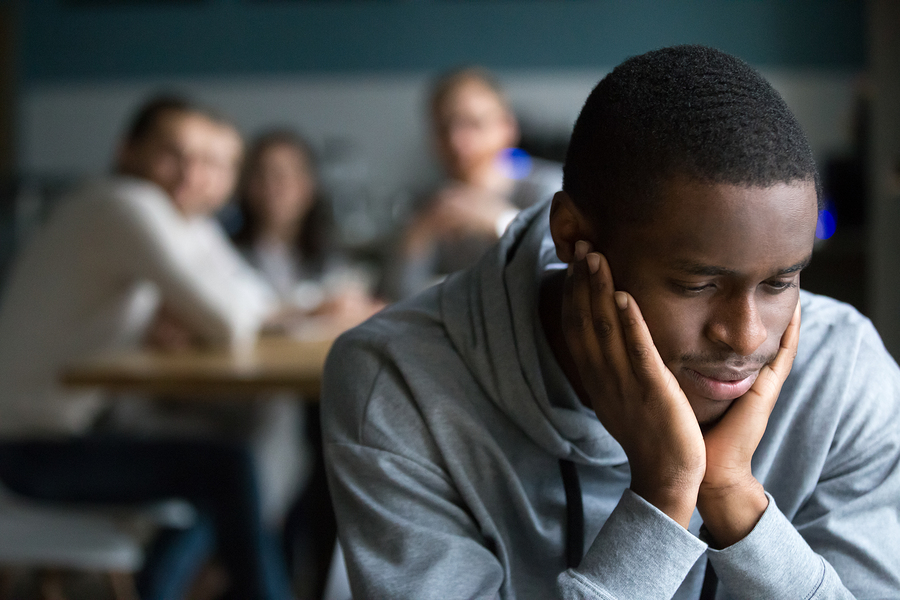People may go through phases in life when they feel very giving, social and connected to others. At other times they may feel more inclined to withdraw from their friends and spend more time alone. It can sometimes mean that you simply need more time to reflect and sort through your feelings but in some cases it may mean you are dealing with some psychological issues.
Our mental health depends on a balance between our social self and our inner world and when someone becomes withdrawn it may be due to feelings of depression, anxiety or other problems. There is nothing wrong with having some alone time or taking a break from social pressure but when it turns to a feeling of isolation then it can become an issue that needs to be addressed. When people become withdrawn because of social fears, feelings of sadness and hopelessness or worry then it may be time to seek help.

If have noticed some signs that you are withdrawing from your social life by frequently canceling plans, avoiding talking to friends and spending a lot of time at home then you might want to consider the cause of your behavior. If you find that it becomes more difficult to socialize or you have very little desire to interact with others then you might have some issues with depression. People can become withdrawn for many different reasons and understanding your underlying feelings can allow you to treat the problem.
Depression and Social Withdrawal
One of the most common reasons that people become withdrawn from others is that they are suffering from depression. In fact, one of the major symptoms that helps psychiatrists to identify depression is the tendency to withdraw from social interaction. Clinical depression causes a strong urge to pull away from other people and shut down socially.
When someone feels depressed they might have so many negative feelings and emotional turmoil that facing a social event or even talking to a friend can seem overwhelming. They may not be able to do anything or even get out of bed on days that they are suffering from depression. Depression can make it hard to cope with anything, especially the daily tasks of life and the sometimes stressful aspects of socializing.
Becoming withdrawn when you are depressed can cause a vicious cycle of feelings that is difficult to escape. You may not want to socialize because you are depressed and over time you may start to feel lonely and isolated which can increase depression. When receiving treatment, people with depression often find that connecting with others and interacting socially actually improves some of their symptoms.
Anxiety, Avoidance and Social Fears
Another common cause of social withdrawal is social anxiety or general anxiety that can make it difficult to interact with other people. Someone may be avoiding social events or stop speaking with others because they feel nervous, worried or anxious about it. The tendency to avoid social situations and become isolated is a common social anxiety symptoms and other types of anxiety.
People tend to avoid situations because they don’t know how to cope with them and withdrawing helps minimize their anxiety. If they experience intense anxious feelings when they are at a party or talking with friends then they might choose to avoid those situations. Social anxiety can be a serious issue that leads to intense isolation in many cases.
Anxiety can cause people to to engage in safety behaviors that help them avoid triggering their anxious feelings. Staying home or only speaking with certain people that they trust is a way that they cope with anxiety. When treating social anxiety, the individual needs to gradually expose themselves to the situations that make them anxious so they can learn to cope in healthier ways.
Returning to Social Life with Treatment
For those with underlying mental illnesses, their social avoidance may be one of the symptoms of their disorder. Treating problems like depression and anxiety can involve addressing that symptom and improving their social life. People with anxiety and depression who are withdrawn from others are only going to worsen their symptoms and maintain a harmful cycle.
Coping with the desire to avoid social situations can begin with a person in treatment learning important strategies to deal with their symptoms. If they feel anxious or depressed they can use certain tactics such as deep breathing, mindfulness and other techniques that can reduce their reactions. Gradually putting themselves back into the social world and finding ways to cope with their feelings over time will help improve their symptoms.
Anxiety and depression can have a dramatic impact on a person’s social life but with treatment and work in therapy it is possible to get back into the social world and stay connected.